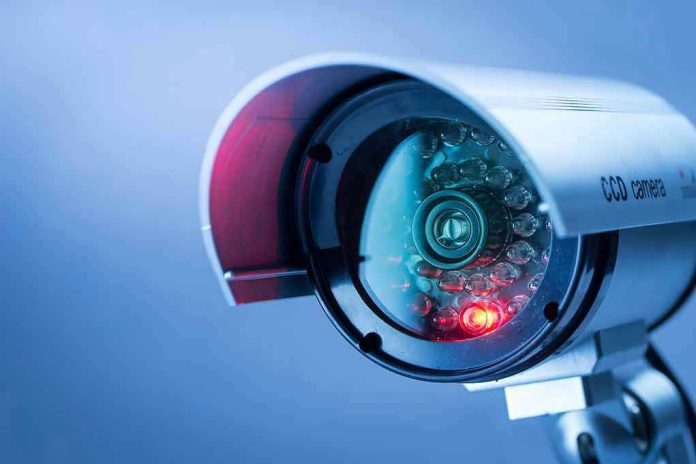
Hong Kong’s authoritarian government is unleashing a dystopian surveillance state that would make George Orwell cringe, expanding its camera network from 4,000 to 60,000 AI-powered facial recognition units by 2028.
Story Overview
- Hong Kong plans to install 60,000 AI facial recognition cameras by 2028, a 1,400% increase from current levels
- Real-time facial recognition technology expected operational by end of 2025 under police-led “SmartView” program
- Expansion follows 2019 pro-democracy protests and 2020 National Security Law implementation
- Privacy experts warn of government overreach with no independent oversight or clear rules on AI surveillance use
Massive Surveillance Expansion Mirrors Communist China
Hong Kong authorities announced plans to dramatically expand their surveillance infrastructure from approximately 4,000 cameras to 60,000 AI-enabled units by 2028. Security Chief Chris Tang confirmed that real-time facial recognition capabilities will be operational by the end of 2025, bringing Hong Kong’s surveillance network closer to mainland China’s oppressive Sharp Eyes and Skynet programs. The expansion represents one of Asia’s largest surveillance upgrades, transforming the former British colony into a digital panopticon.
The police-led SmartView program justifies this expansion as necessary for national security and crime prevention. Senior Superintendent Eric Leung stated authorities will determine if facial recognition integration is possible in SmartView systems by year’s end. The program has already been credited with solving 400 cases and facilitating 787 arrests in 2024, demonstrating the government’s increasing reliance on technological surveillance over traditional policing methods.
Government Overreach Without Constitutional Protections
This surveillance expansion follows the 2019 pro-democracy protests and the subsequent implementation of the National Security Law in 2020, which granted authorities broad powers to monitor and suppress dissent. Over 10,000 arrests have occurred under this framework, illustrating how surveillance technology serves political control rather than genuine public safety. The timing reveals a calculated effort to prevent future demonstrations and maintain authoritarian control over Hong Kong’s population.
Legal experts warn of unchecked government authority and potential abuse of power. Eric Lai from Georgetown Center for Asian Law highlights the dangerous lack of oversight and clear rules governing police use of AI technology. The Office of the Privacy Commissioner for Personal Data reportedly was not consulted on this expansion, demonstrating how authorities bypass even basic privacy protections when implementing mass surveillance systems.
Threats to Individual Liberty and Privacy Rights
The surveillance network will integrate cameras from metro, transport, leisure, and housing departments into a unified monitoring system. This comprehensive approach means Hong Kong residents will face constant surveillance in virtually all public spaces, creating a chilling effect on free speech, assembly, and basic human movement. Privacy advocates warn of risks including false matches, wrongful arrests, and the erosion of civil liberties that Americans take for granted under constitutional protections.
Security Chief Chris Tang defended the initiative, stating that “applying this technology to identify and track individuals, such as criminal suspects, is a logical and necessary progression.” This Orwellian language reveals how authoritarians normalize mass surveillance by framing constitutional violations as technological progress. The lack of independent regulatory oversight means Hong Kong residents have no recourse against false identifications or government abuse of this powerful surveillance apparatus.
Sources:
Hong Kong to increase the number of facial recognition cameras
Hong Kong to Install Surveillance Cameras with AI Facial Recognition
Hong Kong plans 60,000 AI-ready CCTV cameras by 2028
Hong Kong surveillance cameras AI
Hong Kong to install surveillance cameras with AI facial recognition
Hong Kong to install surveillance cameras with AI facial recognition





